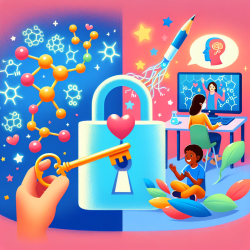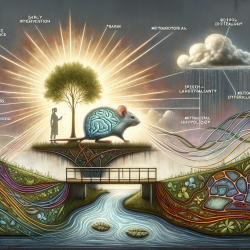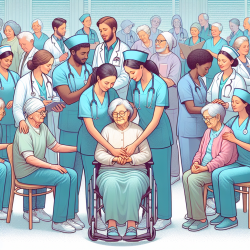Understanding Arts Syndrome and the Role of SAMe and NR
Arts syndrome is a rare, X-linked genetic disorder caused by mutations in the PRPS1 gene, leading to a deficiency in phosphoribosyl pyrophosphate synthetase 1. This enzyme is crucial for the synthesis of purines and nicotinamide adenine dinucleotide (NAD), among other metabolic pathways. The syndrome is characterized by congenital sensorineural hearing loss, optic atrophy, developmental delays, ataxia, hypotonia, and recurrent infections. Unfortunately, these symptoms can lead to a progressive clinical decline, often resulting in death before the age of five.
Therapeutic Advances: SAMe and Nicotinamide Riboside
Recent research, including a case report by Lee et al., has highlighted the potential of S-adenosylmethionine (SAMe) and nicotinamide riboside (NR) as therapeutic options for Arts syndrome. The study documented the clinical course of a fourth patient treated with these supplements, alongside a review of previously reported cases. All patients exhibited stability or improvement in symptoms, suggesting a promising avenue for treatment.
Implications for Practitioners
For practitioners, particularly those involved in speech-language pathology and pediatric care, these findings offer a potential strategy to improve outcomes for children with Arts syndrome. Here are some key takeaways:
- Multidisciplinary Approach: Collaboration with geneticists, neurologists, and other specialists is crucial to tailor treatment plans effectively.
- Monitoring and Assessment: Regular monitoring of symptoms and metabolic markers can help assess the efficacy of SAMe and NR supplementation.
- Patient and Family Education: Educating families about the potential benefits and limitations of this therapy is essential for informed decision-making.
Encouraging Further Research
While the initial findings are promising, further research is needed to establish the long-term efficacy and safety of SAMe and NR in Arts syndrome. Practitioners are encouraged to contribute to this body of research by documenting clinical outcomes and sharing data with the broader medical community.
To read the original research paper, please follow this link: S-adenosylmethionine and nicotinamide riboside therapy in Arts syndrome: A case report and literature review.










